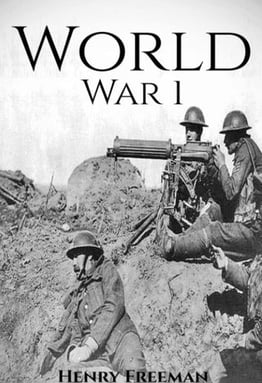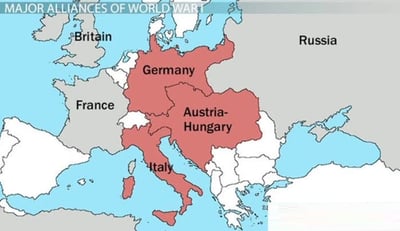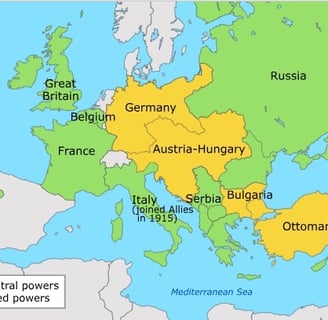World War I[j] or the First World War (28 July 1914 – 11 November 1918), also known as the Great War, was a global conflict between two coalitions: the Allies (or Entente) and the Central Powers. Fighting took place mainly in Europe and the Middle East, as well as in parts of Africa and the Asia-Pacific, and in Europe was characterised by trench warfare and the use of artillery, machine guns, and chemical weapons (gas)


First World War (28 July 1914 – 11 November 1918),
Central Powers
Allies Powers
Germany
Austria- Hungary
Ottoman Empire ( Now new Name Turkey )
Bulgaria
France
Russia
Britain
USA (1917)




Allies attempted to score a victory against the Central Power
In central power, Germany was main Germany has loss this fight and had to suffered to losses
At the end of this fight One soldier was left whose name was hitler who became a cause of 2nd word war.
World War 1 :-
The main causes of World War 1 were alliances between countries, militarism, nationalism, imperialism, secret diplomacy, and internationalism. The assassination of Archduke Franz Ferdinand, heir to the throne of Austria-Hungary, by Gavrilo Princip in Bosnia is widely accepted as the starting point for World War I.
( The spark that ignited World War I was struck in Sarajevo, Bosnia, where Archduke Franz Ferdinand—heir to the Austro-Hungarian Empire—was shot to death along with his wife, Sophie, by the Serbian nationalist Gavrilo Princip on June 28, 1914. Princip and other nationalists were struggling to end Austro-Hungarian rule over Bosnia and Herzegovina.)
Causes of World War I
1. Militarism: The most important cause of the war was militarism. Militarism was a concept that glorified war and the military and was widely spread through Europe during the 19th century. It pushed nations to be ready for war and led to an arms race. This caused tension between countries and rivalry, as they struggled to outdo each other as the most powerful.
2. Imperialism: Imperialism was a motive of making countries stronger and more powerful, which led to tension between countries. Germany and Britain used imperialism to build their empires, which led to tension between them. Many European countries practiced imperialism to build their empires and expand their possessions. This caused tension between the European countries and rivalry, as they struggled to outdo each other as the most powerful nation in Europe.
3. Nationalism: Nationalism was also a major cause of World War 1. It made people decide their loyalty based on ethnic or cultural background, instead of shared interests or ideals.
4. Secret Diplomacy: It was also called “Secret Sympathies” because countries would secretly negotiate their alliances and tactics to gain an advantage over each other.
5. Alliances: Alliances were mutual military agreements between nations, which led to tension and rivalry between countries.
6. Arming for War: Countries had spent a lot of money and energy creating huge militaries, which led to a need for bigger and more powerful weapons.
7. The assassination of Austrian Archduke: Archduke Franz Ferdinand of Austria was assassinated by the Black Hand organization. This was the spark that set off World War 1, which killed 9 million people. The outburst after World War I was huge because of the death count.
